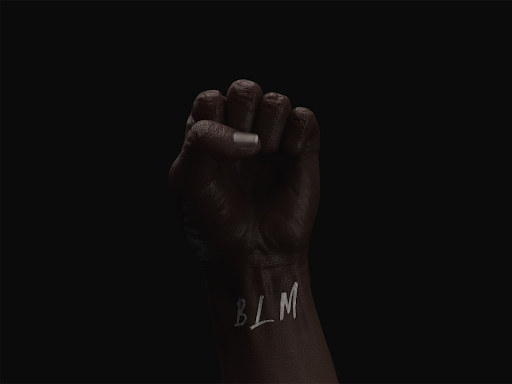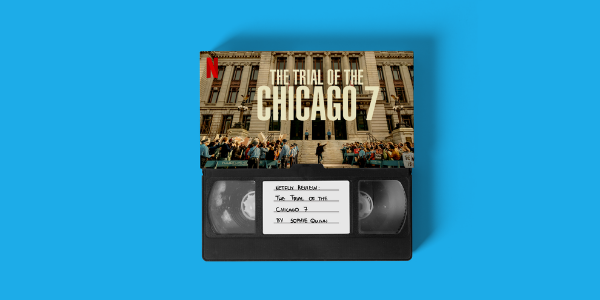Netflix Review: The Trial of the Chicago 7 by Sophie Quinn

*SPOILER ALERT*
Netflix released The Trial of the Chicago 7, featuring Sacha Baron Cohen, Eddie Redmayne and Mark Rylance to its Irish audience on October 16th, 2020. And boy were we in for a surprise! It was chance that led me to this film in particular; I was mindlessly scrolling through rows of Netflix Original productions before happening upon a title that peaked my interest. “What was supposed to be a peaceful protest turned into a violent clash with the police. What followed was one of the most notorious trials in history.” – At the very least it would be a nice accompaniment to some online shopping, I thought (quite foolishly, in hindsight). But then again, with the arrival of seasons three and four of Riverdale I’ve lost respect for Netflix productions. So sitting there with a mug of hot chocolate I watched as a cinematic masterpiece unfolded. I never even noticed my phone slip off the couch.

I should probably warn you that I’m both a history and film geek. This movie isn’t perfect; it has its own concoction of inaccuracies and has been hit with mixed reviews. The Irish Times’s Donald Clarke even scalded it as being “Plodding and pedantic”. You can read his review here: https://www.irishtimes.com/culture/film/the-trial-of-the-chicago-7-plodding-and-pedantic-reading-of-the-1968-riots-1.4367582

I hate to be the rebellious teenager and challenge a seasoned journalist, but I disagree with his criticism. The Trial of the Chicago 7 is centred around a trial of seven defendants (Abbie Hoffman, Jerry Rubin, David Dellinger, Tom Hayden, Rennie Davis, John Froines, and Lee Weiner) accused of conspiracy as a result of counter-cultural protests in Chicago, 1968. One thing that struck me was the vivid depiction of police brutality in the Chicago riots. With the Black Lives Matter movement and the death of George Floyd at the forefront of news reports across the globe this summer, I was horrified to see the correlation between police violence now and half a century ago. Donald Clarke commented that, “The camera fails to make riots look riotous.” – Film footage is interspersed with actual recordings of the protest. We hear the crack of police batons against bone; see the spurting blood of what were peaceful protestors. Most hauntingly, we witness the attempted rape of a young woman, another disturbing link between 1968 and recent media storylines. So I ask you – what could be more real than real-life?
With such a conspicuous cast, it’s not surprising that the quality of their performance is flawless. It’s the gripping emotional connection rippling through the film that really makes it shine. Each actor masterfully portrays the distinct reaction of their character to the events unfolding around them: Abbie Hoffman as the insolent comedian with an underlying layer of passion, Tom Hayden the steely-eyed and outraged young man crippled by guilt throughout the trial, and their lawyer William Kunstler, who struggles to maintain a dignified facade in the face of injustice.
The ending has been branded as agonizingly sentimental. In my opinion, this is entirely dependent on the level of empathic connection that you experience during the film. Any less of a poignant conclusion would have been juxtaposed to the stirring nature of the piece. Ultimately, you might concur wholeheartedly or hate this film as vehemently as I love it. But then again, that’s the beauty of the First Amendment of the so-called “Land of the Free”. Ironically, expression of ideas is also why Rennie Davis had his skull cracked open by police in the city of Chicago, August, 1968.
You can watch the trailer of The Trial of the Chicago 7 here:
Image © Netflix Originals and related entities.

